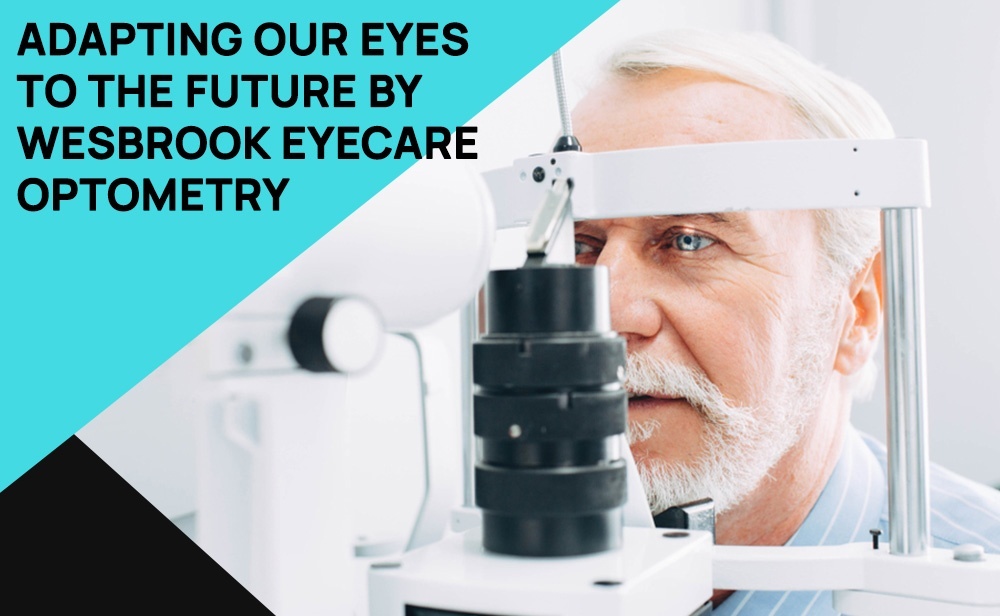Adapting Our Eyes To The Future By Wesbrook Eyecare Optometry

Due to COVID-19, people have been spending more time online and on digital devices as they cannot meet face to face. While digital technology has proved useful, it has also impacted the eye health of several individuals due to long hours of screen time amid the work-from-home setup, school from home, and the growing addiction to social media. On account of this, the experts at Wesbrook Eyecare Optometry want to caution you about the changes your eyes will go through during the pandemic and why COVID-19 should not be a reason for postponing checkups and eye surgeries.
Eye doctors have seen a rise in the number of people visiting them or contacting them virtually about eye troubles. These patients include individuals from almost all age groups. This can be attributed to the longer duration for which digital screens are being used since the pandemic. With months of online classes and work-from-home practices, exposure to screens has gone went up significantly. At the same time, with stay-at-home restrictions and nothing else to do, people are also spending their free time watching TV or scrolling through their social media apps. The pressure on the eyes is poor diet and sleep patterns, which have also taken root due to the pandemic.
Fortunately, people have started noticing changes in how their eyes feel and how their vision has changed owing to the pandemic. They are visiting their eye specialist more often, some even for the very first time. The requirement for glasses and contact lenses has gone up too.
Given how dependent we have become on digital technology and based on the kind of eye conditions we see because of this, we’re expecting to see three significant changes in eye care. They are:
1. More frequent incidence of myopia at younger ages
School closures and a shift to online courses mean that millions of children spent and are spending large portions of their days working at computers instead of being outside. While staying home and learning online was instrumental in protecting children and their families from COVID-19, it may have had a negative impact on the eye health of young students. Spending less time outdoors is known to be a major risk factor for myopia in children. One reason that younger children have been affected more widely is that their eyes (and their myopia) are in an earlier stage of development. If a child was confined at home for a long time during the COVID-19 pandemic, a prompt eye exam is warranted. Today’s myopia management treatments are effective at slowing the progression of the disease when initiated early.
2. More presbyopia in younger adults
Presbyopia is a disorder of the eyes caused due to the decreased or loss of elasticity in the lens of the eyes, making it difficult to focus on the objects nearby. Until a few years ago, this was believed to be typically found in people aged forty years and over. But there has been a rising number of cases where young people have been diagnosed with the same. This disorder in young people is attributed to prolonged screen use. Because of this, there is an increasing amount of worried people coming in for eye checkups and increased use of reading glasses or progressive lenses for work.
3. Increased number of patients experiencing dry eyes
The pandemic has led to many restrictions to limit the spread of COVID-19. During this time (home confinement), some solutions have been proposed by experts to improve work and school productivity, including smart working and online school lessons. However, many of the restrictive measures are likely to act as predisposing factors for dry eyes due to prolonged screen use as well as changes in air quality. Undoubtedly, these models of smart working have produced new styles of life, the digital work, and the digital school, constraining people, young and adults, to prolonged near visual work. Unfortunately, prolonged screen use along with environmental changes such as a change in air quality may lead to ocular surface disorders, such as dry eye, which are associated with local and visual symptoms such as migraines. Due to this, there will be a higher demand for artificial tears as well as related therapeutic treatments.
4. Incorporation of virtual medical appointments
During the COVID-19 pandemic, some eye doctors are seeing patients via virtual “eye exams” while their offices are limited to routine eye care. As a result of these actions and recommendations, until the spread of COVID-19 is contained, many eye care professionals have turned to telehealth to diagnose eye issues without the need for in-office visits and without potentially exposing people to the Coronavirus. These virtual exams let eye care professionals determine whether a patient is experiencing a medical emergency. By being able to evaluate patients from afar, they can minimize the number of in-office visits and decrease the overall risk for COVID-19 exposure. This also gives us the increased ability to reach a wider clientele through virtual means.
If you are looking for an eye doctor or optometrist in Vancouver, BC, reach out to Wesbrook Eyecare Optometry. We have a qualified team of professionals that will work around your busy schedule and address any questions or concerns before the appointment. Whether it’s a general eye exam or treating a condition that requires an in-depth diagnosis, our team provides undivided attention to each patient so we can evaluate a plan based on your needs and our professional opinion. We offer complete vision examinations and diagnose and treat an array of eye diseases and conditions to keep your eyes healthy! We also provide eye care products and services for dry eyes, cataracts, eye exams, Lasik, eye surgery, computer vision treatment, contact lenses, glaucoma, ophthalmology, hard-to-fit contacts, Ortho-K, etc. Visit our website to learn more, or get in touch with us by clicking here.